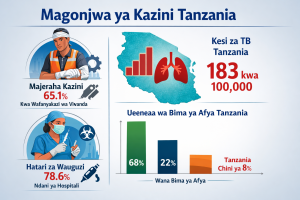
Unlocking Africa’s Economic Potential: The AFCFTA Investment Protocol as a Catalyst for Economic Growth
Courting Investor Protection
Following the signing of the African Continental Free Trade Area (AfCFTA) agreement by 54 states, African Union Heads of State adopted the framework’s investment protocol in February 2023. The trade agreement aims at spurring economic development in Africa by enhancing intra-African trade and investment and a protocol to guide investment and protection of business in foreign markets was a necessity. The AFCFTA Investment Protocol holds immense potential to spur economic growth, attract foreign direct investment (FDI), and foster sustainable development across the African continent.
Thus, the investment protocol by member states provides critical guidance in intellectual property regulation and protection, competition policy, and investment within the free trade area member states. The investment protocol provides additional protection to intra-African trade on a national, bilateral, and regional level. Notably, it provides the needed guidance in dealing with the complexities of 852 bilateral investment treaties among African states in addition to 173 intra-African ones that exist in the market that regulates foreign investment across the continent. However, designed to govern investment in the free trade area and define the rights and obligations of the member states, how can the AFCFTA Investment Protocol act as a catalyst for unlocking Africa’s economic potential?
Foreign Investment Priorities
The objectives of the investment protocol contained in Article 2 indicate that it is designed to offer increased protection of sustainable investment across Africa. The prioritization of sustainable investment in the protocol is critical in ensuring that investments made within Africa align with the pressurizing need for environmental, social, and governance (ESG) principles. Increasingly, sustainability is critical for the long-term economic development of the continent with the potential for driving investment in sectors such as renewable energy, clean technologies, and sustainable agriculture. It is not lost on the African people that fostering economic growth while minimizing environmental degradation is critical considering the suffering that the continent has had to endure with periodic flooding and draughts. With the protocol emphasizing sustainable investment, the free trade area will attract socially responsible investors keen on the impact of investments on the environment and local communities.
Article 2 of the investment protocol also calls for the balancing of investor and state interests among member states across Africa. The balancing of these interests is critical in establishing an increasingly fair and conducive environment for the local and foreign investment necessary in stimulating economic development. Africa has been dominated by investor-state disputes that discourage investment in the past thus affecting Intra-trade with adjudication mechanisms often failing. A balance will therefore provide the much-needed legal protection to investors and especially in the international context and safeguard the sovereignty and policy spaces of African nations. This balance is, therefore, a welcome feature that will build trust and confidence between investors and host nations and thus promote an enhanced stable investment climate. The protocol will therefore protect the interest of either party and encourage greater investment inflows, foster mutually beneficial partnerships between investors and host nations, and effectively stimulate the desired economic activity.
The AFCFTA Investment Protocol further calls for the protection of indigenous communities within host nations while seeking investment opportunities. This is a critical element of enhancing sustainable and inclusive economic development in African by including and protecting vulnerable populations within the investment agenda. The AfCFTA can therefore thrive with the recognition, respect for, and safeguarding of the rights and interests of indigenous communities within the investment process. The protection of these populations ensures that investors take into account the social and cultural aspects of local communities within host nations. Consequently, this is critical in preventing negative impacts of their livelihoods and traditional practices as custodians of African lands and thus achieving an inclusive and sustainable development as outlined in Chapter 4 of the protocol. The protection of indigenous communities will therefore benefit Africans through enhancing inclusive growth, and social cohesion, and preserving Africa’s diverse cultural heritage.
“With the protocol emphasizing sustainable investment, the free trade area will attract socially responsible investors keen on the impact of investments on the environment and local communities.”
Efficient dispute resolution is a critical promise of the AfCFTA Investment Protocol as it plays a critical role in attracting and retaining investments in the continent. The decision of investors to consider foreign nations is often by the availability of recourse for arbitration, access to international courts, or domestic courts of host nations. While the protocol does not provide for the automatic right for arbitration, it provides for initial settlement mechanisms that include negotiation and consultation. This mechanism therefore provides investors with the confidence that their investment disputes would be handled effectively, fairly, transparently, and in a timely manner. This was a missing link in the intra-African trade aspect and will help mitigate investment risks and ensure legal certainty for domestic and foreign investors in recouping their investment despite the occurrence of disputes. The protocol thus establishes a framework for enhancing the overall investment climate within the free trade area, instills confidence in investors, and will effectively encourage a greater inflow of capital into markets.
The AfCFTA Investment Protocol clearly establishes a mechanism for eliminating existing investment barriers such as excessive regulations, and discriminatory practices and thus enhances increased capital flow within the continent. It is, therefore, a timely framework for encouraging economic integration across the continent and regions which is critical in encouraging African businesses to expand and invest domestically for better economic cooperation and interconnectivity. Its importance is also underlined in providing a harmonized investment framework across nations, mitigating business risks, and fostering the legal protection of foreign investors. Thus, AfCFTA member states can anticipate increased foreign direct investment inflows, job creation technology transfer, and overall economic development as the investment protocol takes root.
Muoki Musila is an Kenyan based economist. These are the writer’s own opinions and do not necessarily reflect the viewpoints of Liberty Sparks. Do you want to publish in this space? Contact our editors at [email protected] for further clarification.



